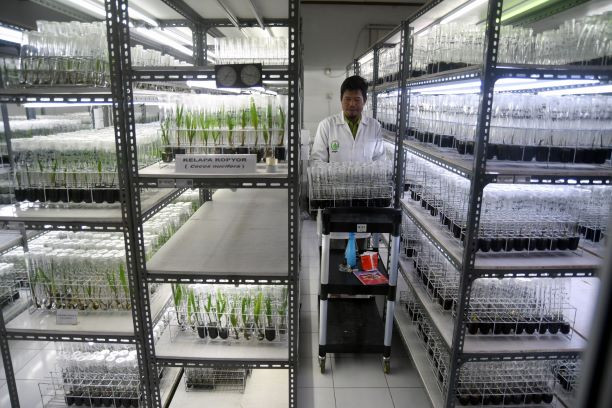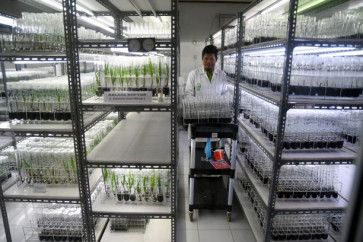Popular Reads
Top Results
Can't find what you're looking for?
View all search resultsPopular Reads
Top Results
Can't find what you're looking for?
View all search resultsIndonesia lags behind in critical tech race
Problems over public funding for research and development remain largely undermined by a lack of political will and political wrangling, particularly over the allocation of resources to Indonesia’s scientific National Research and Innovation Agency (BRIN).
Change text size
Gift Premium Articles
to Anyone
A
new tracker by a group of experts from the Australian Strategic Policy Institute (ASPI) offers some insight. The recently released Critical Technology Tracker presents a glimpse into how well countries fare when it comes to producing high-quality research on technologies considered “critical” for bolstering a country’s national economic growth and security, ranging from vaccines and semiconductors to quantum computing.
And who’s leading? In 37 out of 44 technologies, China is in the lead, with the United States leading in 7 and coming second in the other 37.
How does Indonesia fare in these rankings? Despite growing government attention and spending on innovation, Indonesia still struggles to compete in producing important research on critical technology.
While some Indonesian researchers have produced impactful works in fields ranging from biofuel research to advanced robotics, publications by Indonesian research institutes only constitute around 1 to 3 percent of high-quality research outputs in 15 out of the 44 research areas identified as critical technologies.
Indonesia’s most important contribution seems to be in biofuel research, with its research institutions collectively being the ninth largest producer of research in this field. Out of 1,135 studies on biofuel, however, only 17 are among the most highly cited in the field, making their impact ranked 36th globally.
Indonesia scores middlingly for research in other technologies. Among others, Indonesian researchers rank 36th in the world for space launch systems, advanced aircraft engines, and advanced integrated circuit design; 36th in advanced integrated circuit design (semiconductors); and 32nd in nuclear waste management and recycling.
The University of Indonesia is a standout performer, being in the top 200 research institutes in several categories, including 190th in advanced data analytics, 200th in photovoltaics, 198th in natural language processing, 175th in critical minerals extraction and processing, and 199th in vaccine research. Meanwhile, Gadjah Mada University in Yogyakarta ranks 185th in biofuels and 199th in biological manufacturing.



















